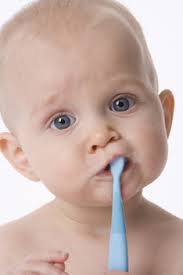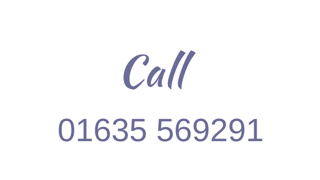When will my baby’s teeth start developing?
Milk teeth (deciduous teeth) begin to form at about 6 weeks after a baby is conceived. By the time your baby is born, all 20 primary teeth are present in the jawbones. The permanent teeth also begin to develop before birth.20/20 Dental Practice is a NHS Dentist for children in Newbury for children.We recommend you bring your baby for their first visit at around 2 years.

The teething process
Most babies start teething at around six months. However, all babies are different and the timing of teething varies. Some teeth grow with no pain or discomfort at all. At other times you may notice that the gum is sore and red where the tooth is coming through, or that one cheek is flushed. Your baby may dribble, gnaw and chew a lot, or just be fretful.
Some people attribute a wide range of symptoms to teething, such as diarrhoea and fever. However, there is no research to prove that these other symptoms are linked. You know your baby best. If their behaviour seems unusual, their symptoms are severe or are causing you to be concerned, then seek medical advice.
|
Upper Teeth |
When tooth emerge |
When tooth falls out |
|
Front teeth (Incisors) |
8 to 12 months |
6 to 7 years |
|
Lateral incisors |
9 to 13 months |
7 to 8 years |
|
First Molar |
13 to 19 months |
9 to 11 years |
|
Canine |
16 to 19 months |
10 to 12 years |
|
Second Molar |
25 to 33 months |
10 to 12 years |
|
Lower Primary Teeth Development |
||
|
Lower Teeth |
When tooth emerge |
When tooth falls out |
|
Font Teeth |
6 to 10 months |
6 to 7 years |
|
Lateral incisors |
10 to 16 months |
7 to 8 years |
|
First Molar |
14 to 18 months |
9 to 11 years |
|
Canine |
17 to 23 months |
9 to 12 years |
|
Second Molar |
23 to 31 months |
10 to 12 years |
Most children will have all of their milk teeth by the time they are two and a half years old.
7 teething tips
There are several ways you can help make teething easier for your baby. You may have to try several different things until you find something that works for your baby.
1.Teething rings
You can give your baby a teething ring to safely chew on. Cooling the teething ring in the fridge, may help to soothe your baby's gums. Make sure you follow the instructions on chilling the teething ring. Never put a teething ring in the freezer because it could damage your baby's gums if it becomes very hard or cold.
2. Brush-Baby Teether Brush
This award winning silicone brush helps clean teeth, gums and soothe teething gums while it is chewed. It may be cooled in the fridge or used with a teething gel to soothe teething gums. Its unique shape fits little mouths correctly and reaches the back teeth and gums.
We all know babies love chewing Mum’s necklace. These washable silicon necklaces are safe for babies to chew on while Mum is wearing it. The necklaces and bangles have been tested for toxicity and for small parts to the European, American and Australian & New Zealand standards.
4.Teething gelsIf your baby is older than four months, you can rub sugar-free teething gel on their gums. Teething gels often contain a mild local anaesthetic, which helps to numb any pain or discomfort caused by teething. The gels may also contain antiseptic ingredients, which help to prevent infection in any sore or broken skin in your baby's mouth. Do not use a general oral pain relief gel, as it is not suitable for children. Check with your pharmacist before buying a teething gel to make sure that it is suitable for your baby.
5.Finger foodTry and give healthy things for your baby to chew on, such as raw fruit and vegetables. Pieces of apple, carrot or a breadstick are ideal. Always stay close in case they choke. It is best to avoid rusks because nearly all brands contain some sugar. Avoid any items that contain lots of sugar as this can cause tooth decay even if your child only has a few teeth. Always supervise your baby when eating.
6.Cool drinksCool, sugar-free drinks will help to soothe your baby's gums and may help if they are dribbling excessively. The best option is to give them cool water.
7.Painkilling medicineIf your baby is in pain or has a raised temperature, you may want to give them a painkiller. These medicines contain a small dose of paracetamol or ibuprofen to ease any discomfort. Just make sure the medicine is sugar-free.
Preventing teething rash
If your baby dribbles more than usual, wipe their chin and face frequently to prevent them developing a rash.


.png?width=320&name=Request%20(1).png)
